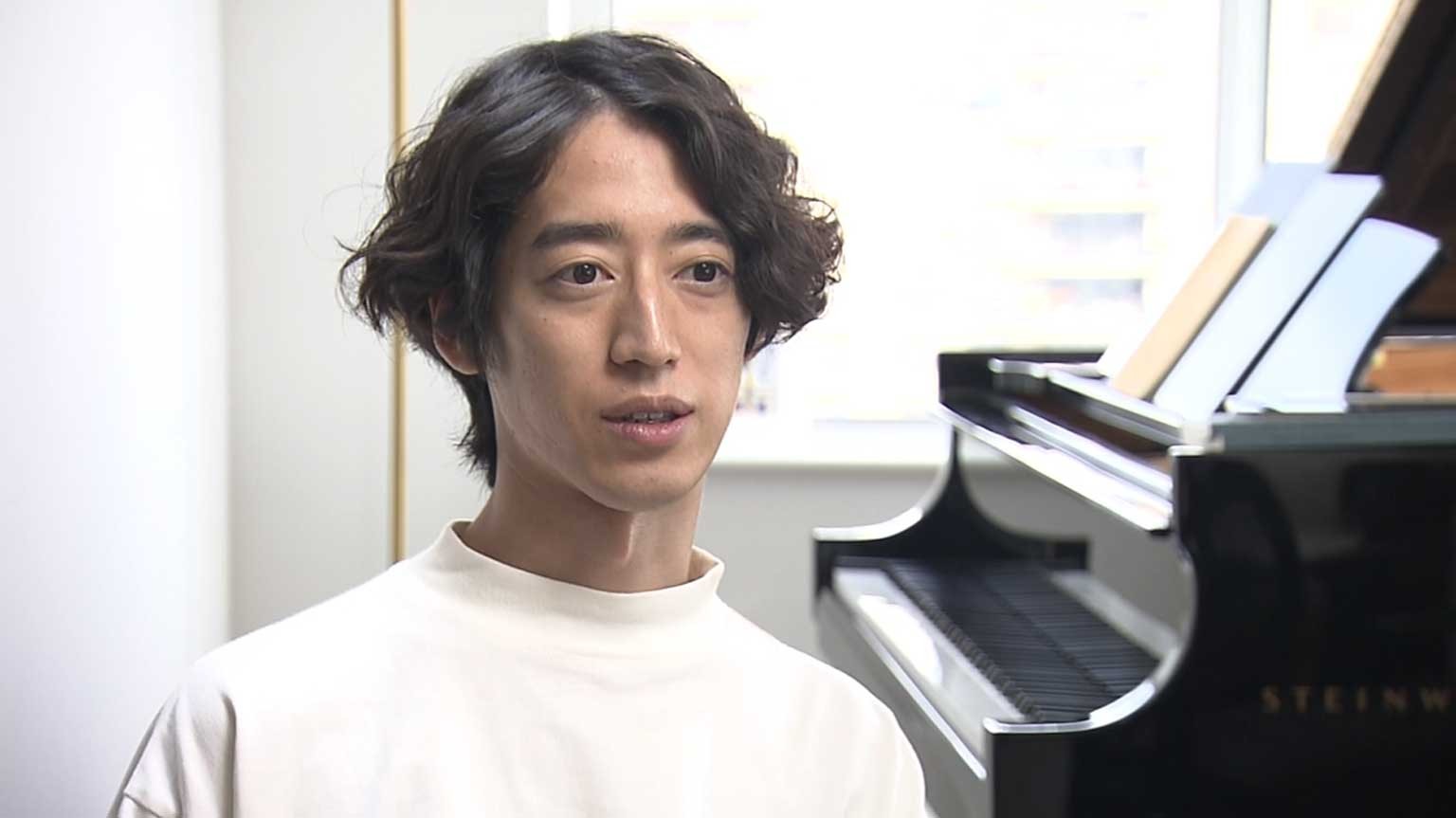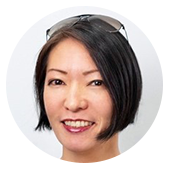The 28-year-old musician relocated alone to New York City from Tokyo in April 2023, to a place not far from where one of his idols George Gershwin once lived and worked.
Sumino began his professional career only five years ago, and his popularity has grown exponentially. His domestic concerts sell out almost instantly and his YouTube channel boasts 1.3 million subscribers.
But he says leaving Japan was a necessary step. Now based in the world’s musical and entertainment mecca, he is determined to forge his own unique identity in classical music.
Sumino's US debut
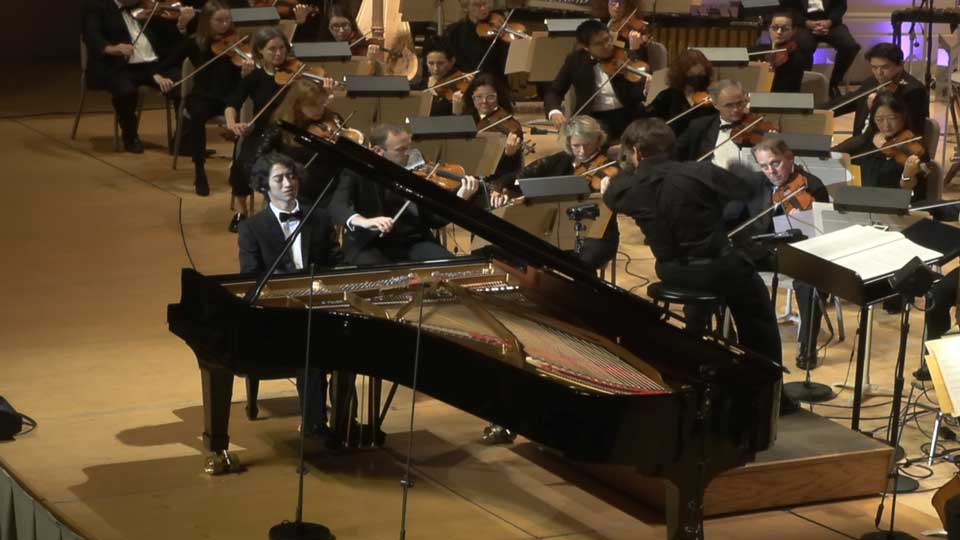
By chance, one of his dreams came true soon after his move: he made his US debut with an American orchestra performing Gershwin's piano concerto.
Sumino had been slated to perform last October as a guest soloist with the Boston Pops Orchestra in Tokyo. But ahead of the Japan tour, the Pops invited him to join a concert at the historic Boston Symphony Hall.
On September 23, Sumino took to the stage in Boston before an audience of 2,500. He performed Gershwin's passionate third movement of "Concerto in F." For an encore, he played "10 Levels of 'I Got Rhythm,'" which he arranged from Gershwin's original composition — to repeated standing ovations.
Sumino plays Gershwin's 'Concerto in F' with the Boston Pops
Gershwin and the Boston Pops
Gershwin was known for his ability to combine popular, jazz and classical genres of music in his works, which are still performed around the world. His most famous "Rhapsody in Blue" was composed a century ago.
The composer had a long history with the Boston Pops, which frequently performs his work. The orchestra featured Gershwin as a piano soloist and conductor in 1936, when he played the same concerto that Sumino chose for his own debut.
Gershwin "is one of the central composers in the Boston Pops repertoire. And Hayato has that same feeling that musical worlds interconnect and that he is a classical musician who is very adept at improvisation," says Keith Lockhart, the Pops' longtime conductor.
Lockhart says that Sumino and the Boston Pops itself both demonstrate "that music does not have those sorts of boundaries — that great music is great music."
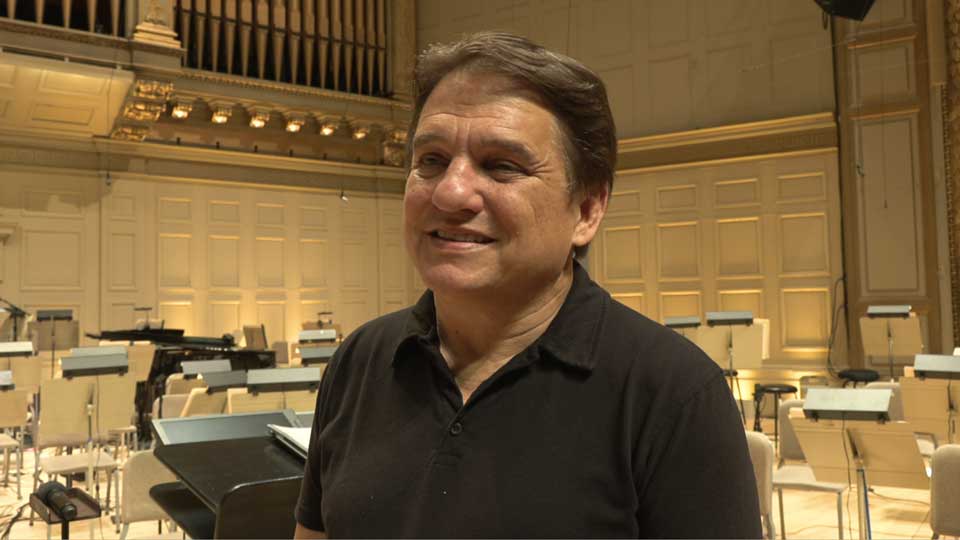
Gershwin's words resonate with Sumino
The Boston Symphony Hall's archives contain original programs from Gershwin's 1936 Pops concert, along with newspaper articles and reviews. Sumino visited to see them after his rehearsal.
In one interview, Gershwin told a reporter, "It's just as difficult to write popular music as it is to write serious music." Sumino had a glimpse into Gershwin's mindset crossing genres of "serious music" and "popular music" and it resonated with him. Sumino mused, "Funny, he was thinking the same things back then as I do now."
BSO Archivist, Bridget Carr, shows Sumino historic concert programs and newspaper articles from 1936
"I love that Gershwin created his own music, fusing different genres, and what he created had great influence on future generations," says Sumino. "I find it similar to how I've lived and grew as a classical musician while trying to put many musical genres into my music."
Encounters beyond borders
Sumino also feels a strong connection to Gershwin's playful character, saying, "His music is so catchy and bright, and emanates such positive energy." Sumino says he wants his audiences to experience his music in a similar way, with a sense of playful fun that transcends borders.
He also cherishes serendipitous connections he makes through music and life, such as the time in September he visited the apartment building where Gershwin once lived. As he was reading a plaque explaining the building's connection to the composer, a woman stopped and asked why he was interested in Gershwin.
Sumino with a Gershwin fan, Laura Gold, in New York City
He introduced himself as a Japanese pianist who loved playing his works. Her face lit up, and she asked him to wait while she put away her groceries in her apartment. She was a resident there.
She returned with an old vinyl record in her hands — a vintage 1955 recording of Gershwin's "Concerto in F" and other pieces which her late father treasured. She said she loves Gershwin, too, and asked Sumino to put it in his safekeeping. Sumino gladly obliged. Afterwards, he promised to invite her to his future concert if he has a chance to play in New York.
Sumino's beginnings
Sumino, whose mother was a piano teacher, first began playing when he was 3 years old. He won numerous domestic piano competitions and gained media attention as a musical prodigy even before he was 10.
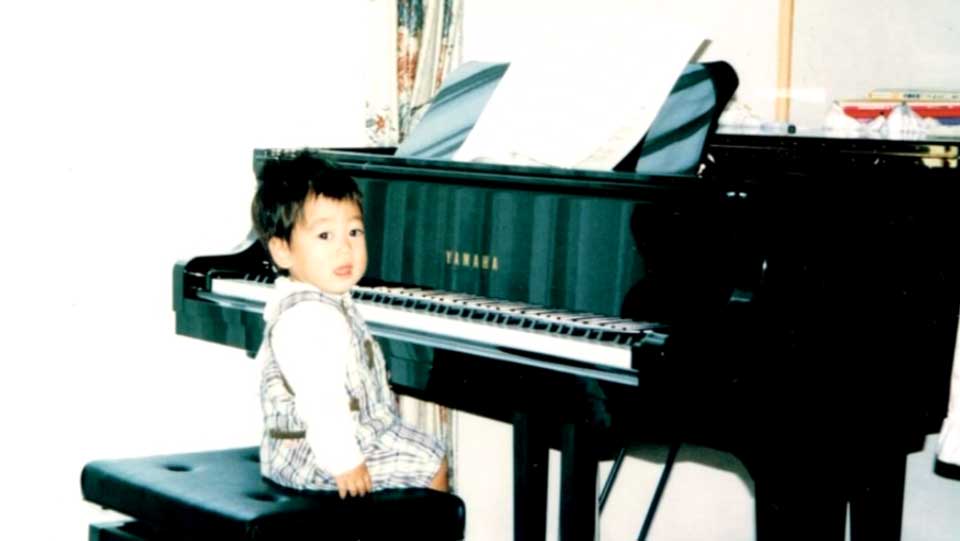
He studied classical piano throughout his childhood, but his attention turned to other activities like computer games in his teenage years. He began posting his private performances of gaming music on social media like YouTube, where his own arrangements of the pieces incorporating different styles and genres attracted diverse fans.
His love for music never wavered but he was also interested in math, so he decided to study engineering at the University of Tokyo rather than enter a music conservatory. While he was a student, he became increasingly aware that music was his true passion.
To explore different musical genres, he joined a university band playing popular music and jazz. He also studied academic subjects connecting his musical interests with engineering, sound processing and the new field of artificial intelligence.

Sumino began graduate studies in sound engineering in 2018, still unsure about his future career path. He eventually decided to test his talent as a pianist once more.
He applied to the PTINA Piano Competition, Japan's largest piano contest, and won its Grand Prix — the first person to achieve this without attending a music conservatory.
Winning the competition opened the door to a concert tour across Japan. He says this experience changed the direction of his life. He decided to pursue a career as a pianist.
Chopin setback
Soon after choosing his career path, Sumino entered the International Chopin Piano Competition in 2021.
Being in the spotlight, he said he was overwhelmed by a fear he never felt before. As a musician who melds different musical genres, he feared his performance of Chopin was not good enough, not classical enough.
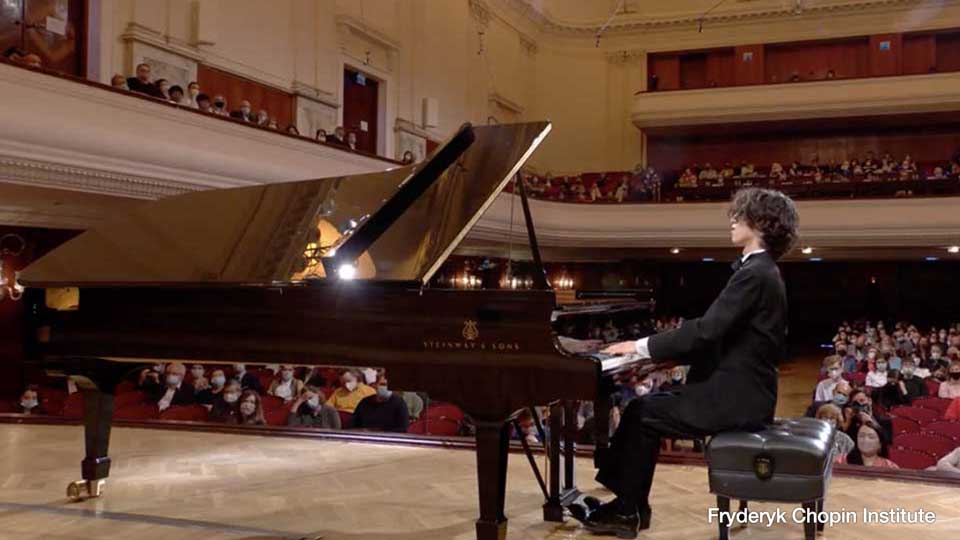
He says the immense pressure he felt affected his performance, and remembers his hands and legs trembling badly on stage. He advanced to the third round but missed the chance to advance to the finals — his first experience of defeat.
His competition performances were streamed via YouTube, where millions around the world viewed them. His international recognition expanded his already large online fan base.
Sumino did not wallow in disappointment for too long. He stayed in Europe, where he approached other classically trained pianists who also crossed musical genres, such as Luxemburg’s Francesco Tristano and Poland's Hania Rani. Those connections later developed into international musical collaborations.
During 2022, he immersed himself in performing, composing, and making media appearances. The following year, he embarked on an ambitious tour of Japan, which attracted 30,000 people.
While his career seemed to be going well, Sumino says he began to feel something was missing.
Changing the environment
To grow as a musician, Sumino decided to make a drastic change. He chose New York as the base for the next phase of his life.
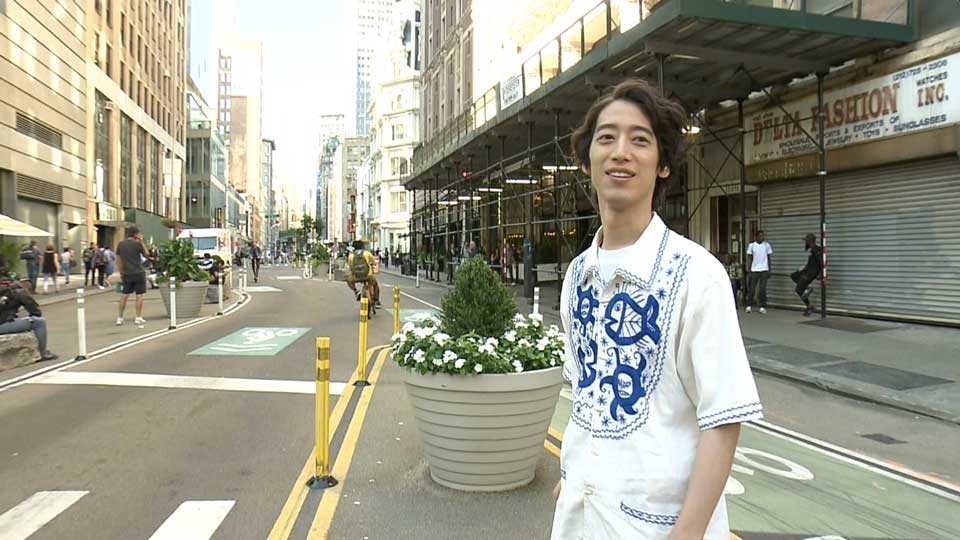
"It was so comfortable to be in Japan," Sumino says, "but I thought about the excitement I'd felt when I briefly visited New York and heard jazz, minimalist, and other kinds of music."
"I needed new inputs," Sumino says, "to continue living as a musician."
In search of unique identity

Many established musicians in New York have made careers in their own boundary-pushing genres. Sumino does not hesitate to approach others; he simply asks them to meet and play music together or exchange ideas. With every connection, he says he gains something new.
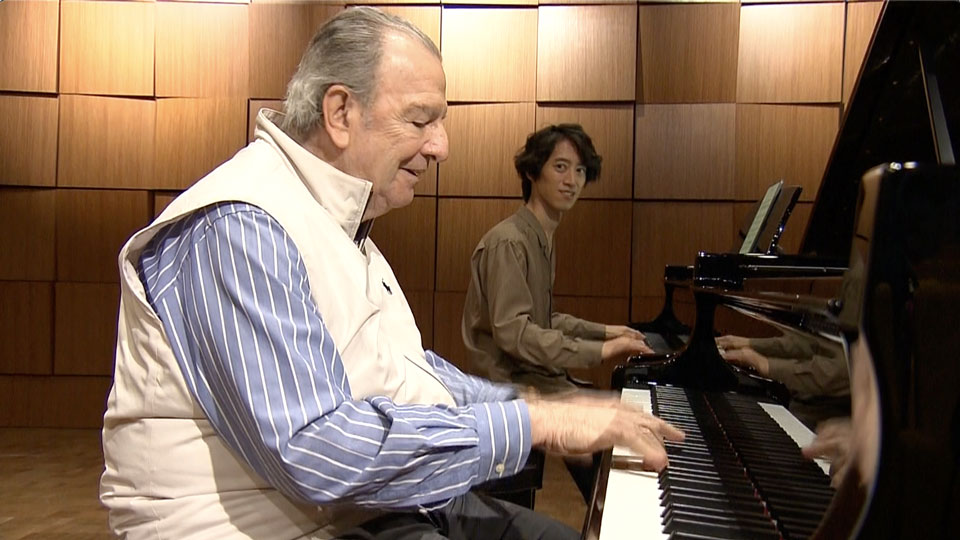
When asked what kind of musician he hopes to be, he hesitated before speaking but his answer was clear.
"I, of course, want to be a musician who leaves some kind of a mark in the future," he says, looking up. "I want my music to be recognized uniquely as my own, as Sumino Hayato."
Reporter's note
I first became interested in Sumino as one of a few Japanese pianists who advanced to the final stages of the Chopin Competition; I watched his live performances streamed from Poland in 2021. Then, I searched him online which resulted in my serial video watching on his "Cateen" YouTube page. That's probably typical of how many find Sumino and his music.
Then, I heard he was moving to New York solo; I was very intrigued to find out why he chose the City and how his music was evolving after the competition.
Other than Gershwin, his musical idols include Sakamoto Ryuichi and Hisaishi Joe, both renowned Japanese musicians/composers who spent many years in New York City. "I was compelled to move rather impulsively," smiled Sumino, when I asked why he chose to live here. He seemed very comfortable with NY culture where many cultures collide.
Sumino truly loves to push boundaries. As he crisscrosses the globe, he announced his latest aim is to share his music with 10,000-plus audience in Tokyo this summer. He is deeply curious and hungry to learn what makes classical music evolve. And I’ve felt that he wants to involve us all on his journey into the future.
